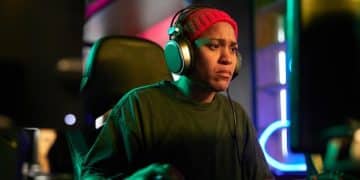Esports Burnout Solutions: Peak Performance & Well-being
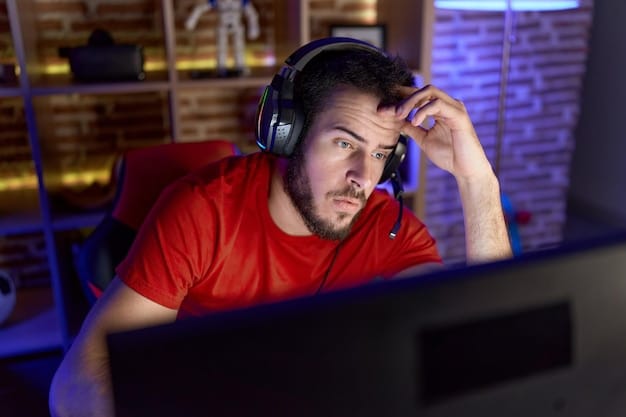
Navigating burnout in esports requires a strategic blend of physical, mental, and emotional well-being techniques to ensure players maintain peak performance and career longevity.
The competitive world of esports is exhilarating, demanding, and often relentless. While the spotlight shines brightly on triumphs and peak performances, a silent battle often rages behind the screens: burnout. For professional players striving for continued success, understanding and proactively managing burnout is crucial for not only maintaining performance but also for extending their careers and safeguarding their well-being. This article delves into Esports Corner: Practical Solutions: Managing Burnout in Esports – Proven Techniques for Maintaining Peak Performance, offering actionable strategies to navigate these intense pressures.
Understanding Burnout in Esports: The Unseen Battle
Burnout in competitive gaming is more than just feeling tired; it’s a state of chronic physical, emotional, and mental exhaustion caused by prolonged or excessive stress. Unlike general fatigue, burnout often manifests as feelings of cynicism, detachment, and a reduced sense of accomplishment. In the high-stakes environment of esports, where performance directly impacts livelihood and public perception, the pressures can escalate quickly, making players particularly susceptible.
The intense training schedules, often extending many hours a day, coupled with the cognitive load of high-level gameplay, create a unique breeding ground for burnout. Players are constantly under pressure to perform, learn new strategies, and adapt to evolving metas. This relentless pursuit of perfection, combined with the often sedentary nature of the profession, can lead to both physical and psychological wear and tear.
The unique stressors of competitive gaming
Esports players face a distinct set of stressors that contribute to burnout. These include the demanding practice regimes, the constant travel for tournaments, the scrutiny from fans and media, and the financial pressures associated with performance. Unlike traditional sports where physical activity provides a natural outlet for stress, esports requires sustained mental focus, which can be equally draining.
- Performance anxiety: The fear of failing in high-stakes matches.
- Social isolation: Limited social interactions outside of team and gaming circles.
- Sleep disruption: Irregular schedules due to practice, travel, and competition.
- High expectations: Internal and external pressures to constantly excel.
Moreover, the line between work and personal life often blurs for professional gamers. Their passion becomes their profession, which can erode the enjoyment that initially drew them to gaming. Recognizing these unique stressors is the first step toward developing effective strategies for prevention and recovery.
The cumulative effect of these factors can lead to a decline in cognitive function, slower reaction times, impaired decision-making, and an overall reduction in enjoyment of the game. For teams, this translates to inconsistent performance and potential loss of competitive edge. Addressing burnout is not merely about individual well-being; it’s a strategic imperative for sustained team success.
Establishing Healthy Routines: The Foundation of Resilience
One of the most practical and impactful solutions to manage burnout in esports is the establishment of healthy, consistent routines. While the unpredictable nature of tournaments and practice schedules can pose challenges, creating a framework of predictable habits provides a crucial anchor for players’ physical and mental well-being. This involves a holistic approach that prioritizes sleep, nutrition, and scheduled breaks.
A structured daily routine helps to regulate the body’s natural rhythms, reducing the strain caused by erratic schedules. This includes setting fixed times for waking up, sleeping, meals, and practice sessions, even when traveling. Adherence to these routines, wherever possible, can significantly improve a player’s ability to cope with stress and maintain energy levels.
Prioritizing sleep for cognitive function
Sleep is arguably the most critical component of a player’s recovery and cognitive performance. Insufficient or irregular sleep directly impairs reaction time, decision-making, and emotional regulation. Esports players, like elite athletes, need ample, high-quality sleep to recover from intense mental exertion and solidify learned skills.
- Consistent sleep schedule: Go to bed and wake up at the same time daily, even on off-days.
- Optimized sleep environment: Dark, quiet, cool room, free from electronic devices.
- Pre-sleep routine: Wind-down activities like reading or gentle stretching to signal rest.
- Avoid stimulants: Limit caffeine and nicotine intake, especially in the evening.
Encouraging a “digital detox” before bed, where screens are avoided for at least an hour, can greatly improve sleep quality. Teams can facilitate this by scheduling practices earlier in the day and providing resources for sleep hygiene education.
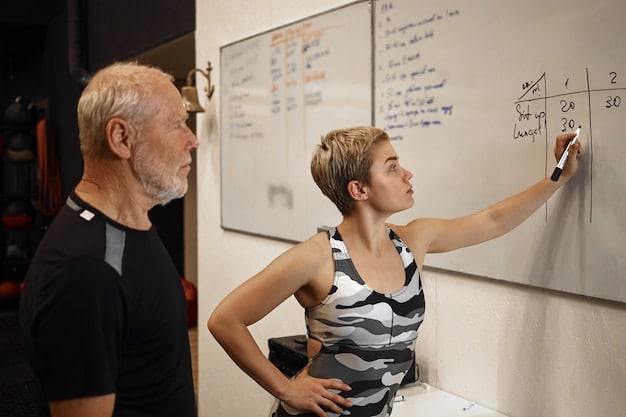
Beyond sleep, nutrition plays a vital role. A balanced diet provides the consistent energy required for sustained mental focus, while regular hydration prevents fatigue and headaches. Integrating short, frequent breaks during practice sessions also prevents mental fatigue from accumulating, allowing players to reset and return with renewed focus. These breaks should be non-gaming related, encouraging movement or mindful relaxation.
Integrating Physical Activity: Beyond the Chair
While esports is primarily a mental sport, the physical demands should not be underestimated. Prolonged sitting, repetitive hand movements, and sustained concentration can lead to physical ailments and contribute significantly to mental fatigue. Incorporating regular physical activity stands as a powerful antidote to the sedentary lifestyle and mental stress inherent in competitive gaming.
Physical activity, whether structured exercise or casual movement, serves multiple purposes. It improves cardiovascular health, strengthens muscles, enhances blood flow to the brain, and most importantly, acts as a natural stress reliever. Endorphins released during exercise combat feelings of anxiety and boost mood, offering a much-needed mental break from the intensity of gaming.
Tailored exercise regimens for gamers
Generic workout plans may not fully address the specific needs of esports players. Instead, exercise routines should be tailored to counteract the effects of long hours at a desk. This includes exercises that strengthen the core and back, improve posture, and alleviate strain in the wrists, hands, and shoulders.
- Cardiovascular exercise: Running, swimming, or cycling to improve stamina and circulation.
- Strength training: Focus on core and back muscles to support posture and prevent pain.
- Flexibility and mobility: Stretching and yoga to address stiffness from prolonged sitting.
- Hand and wrist exercises: Specific drills to prevent carpal tunnel syndrome and repetitive strain injuries.
Even incorporating short bursts of movement, such as walking around during breaks or performing light stretches between matches, can make a substantial difference. Professional teams increasingly employ fitness coaches to design and oversee these tailored programs, recognizing their direct impact on player longevity and performance.
Moreover, the psychological benefits of physical activity extend to improved self-esteem and a sense of accomplishment outside of gaming. This diversification of identity can be critical in preventing burnout, as players have another avenue for success and fulfillment that isn’t tied directly to their competitive results. It’s an investment in holistic well-being that pays dividends in sustained performance.
Cultivating Mental Fortitude: Psychological Strategies
The mental game in esports is as crucial as mechanical skill. Burnout often stems from sustained psychological pressure, making mental fortitude a key pillar in its prevention and management. Developing robust psychological strategies allows players to process stress, maintain focus, and rebound from setbacks more effectively.
This goes beyond simply “being mentally tough”; it involves active techniques like mindfulness, goal setting, and reframing negative thoughts. These strategies equip players with the tools to navigate intense competitive environments without succumbing to the overwhelming emotional and mental load. It’s about building an internal resilience that buffers against external pressures.
Mindfulness and meditation for stress reduction
Mindfulness practices, such as meditation and deep breathing exercises, offer powerful ways to reduce stress and improve focus. By training the mind to remain in the present moment, players can avoid dwelling on past mistakes or future anxieties, both of which are common triggers for burnout.
- Daily meditation: Short 5-10 minute sessions to calm the mind and enhance concentration.
- Mindful breathing: Techniques to regulate arousal and manage pre-match nerves.
- Body scan meditation: To identify and release physical tension.
- Guided imagery: To visualize success and improve mental rehearsal of game scenarios.
These practices are not abstract concepts; they are trainable skills that, with consistent effort, can significantly improve a player’s ability to remain composed under pressure and prevent mental fatigue. Many top esports organizations now incorporate these practices into their training regimens.
Beyond mindfulness, effective goal setting is vital. Breaking down large, daunting goals into smaller, achievable steps provides a sense of progress and reduces overwhelm. Learning to differentiate between controllable and uncontrollable factors helps players focus their energy constructively. Furthermore, developing a growth mindset, where challenges are viewed as opportunities for learning rather than insurmountable obstacles, empowers players to embrace continuous improvement and weather competitive storms more effectively.
The Role of Support Systems: Team and Individual Wellbeing
No player is an island, especially in team-based esports. A robust support system – both within the team structure and from external sources – is indispensable in preventing and managing burnout. This network provides emotional support, practical assistance, and diverse perspectives, ensuring players don’t bear the full weight of their professional pressures alone.
Within a team, fostering an environment of open communication, trust, and mutual respect allows players to share their struggles without fear of judgment. Coaches, managers, and teammates can act as vital first responders, identifying signs of burnout early and offering timely interventions. Outside the team, access to professional psychological services provides specialized, confidential support.
Building a supportive team environment
A healthy team culture goes beyond just in-game synergy; it encompasses mutual care and understanding among members. When teammates feel genuinely supported, they are more likely to communicate their struggles, leading to quicker identification and resolution of burnout symptoms.
- Open communication: Encourage players to express feelings and concerns without inhibition.
- Shared responsibilities: Distribute tasks fairly to prevent any single player from feeling overburdened.
- Conflict resolution: Address disagreements constructively to maintain team cohesion.
- Team-building activities: Engage in non-gaming activities to strengthen bonds and create shared experiences.
Team leaders and coaches play a pivotal role in cultivating this supportive atmosphere, acting as facilitators and ensuring that mental health is prioritized alongside performance metrics. Regular check-ins and dedicated mental health breaks can be integrated into the team’s schedule.
Equally important is access to professional mental health support. Sports psychologists specializing in esports can provide tailored strategies for coping with pressure, managing anxiety, and developing healthy boundaries. This external, objective perspective can be crucial when internal team dynamics might complicate matters. Encouraging players to seek help when needed, and normalizing mental health discussions, are critical steps toward a more sustainable competitive environment.
Balancing Life and Game: The Importance of Diversification
For many esports professionals, the line between their identity as a gamer and their personal self can become dangerously blurred. When gaming consumes every aspect of life, it not only accelerates burnout but also leaves players without alternative sources of fulfillment or identity. Diversifying interests and maintaining a life outside the game is a critical, yet often overlooked, strategy for long-term health and performance.
Engaging in hobbies, spending time with friends and family, or pursuing educational goals provides a necessary mental escape and reminds players that their worth isn’t solely defined by their competitive results. This balance helps to prevent the feeling of being trapped by the game, fostering a healthier, more sustainable relationship with their profession.
Engaging in non-gaming leisure activities
Actively pursuing interests outside of esports introduces novelty and provides a sense of accomplishment in different domains. This can be anything from learning a new skill to participating in outdoor activities, offering a refreshing contrast to the intensity of competitive gaming.
- Nature exploration: Hiking, walking, or simply spending time outdoors to disconnect.
- Creative pursuits: Drawing, playing an instrument, writing, or cooking to engage different parts of the brain.
- Social interactions: Spending quality time with non-gaming friends and family.
- Learning new skills: Taking a class or pursuing a new hobby completely unrelated to gaming.
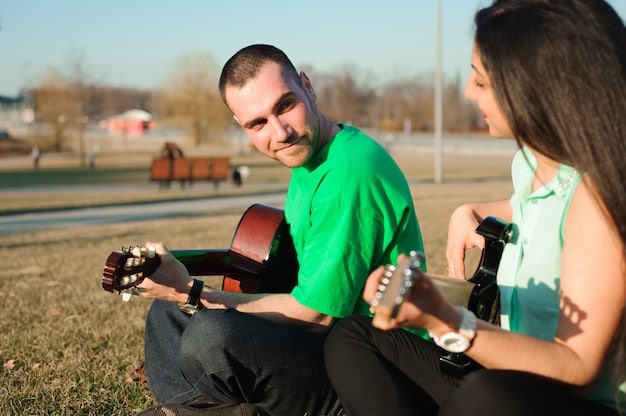
These activities allow the mind to fully disengage from game-related thoughts and pressures, promoting genuine rest and mental regeneration. It can also provide a sense of perspective, reminding players that their professional identity is only one part of who they are, thereby reducing the existential dread often associated with burnout.
Furthermore, maintaining strong personal relationships outside the gaming bubble provides a vital support network and emotional anchors. These connections offer diverse perspectives and can act as healthy outlets for stress and personal growth. Encouraging educational pursuits, even part-time, can also broaden a player’s horizons and prepare them for a life beyond competitive gaming, reducing the “all eggs in one basket” anxiety that often fuels burnout.
Implementing Professional Support: Coaches and Therapists
While self-management techniques are essential, the sustained high-pressure environment of esports often necessitates professional intervention. The specialized expertise of performance coaches, sports psychologists, and therapists can be instrumental in providing tailored strategies and unbiased support for players grappling with or attempting to prevent burnout.
These professionals offer a structured approach to mental training, stress management, and emotional regulation that goes beyond what a team coach typically provides. Their involvement signifies an organization’s commitment to player well-being as a cornerstone of long-term success, moving beyond a purely performance-driven mindset to one that embraces holistic health.
The expertise of esports psychologists
Esports psychologists are uniquely positioned to understand the specific mental and emotional challenges faced by competitive gamers. They can provide individual counseling, team workshops, and performance-enhancement strategies tailored to the esports context.
- Stress inoculation training: Techniques to build resilience against high-pressure situations.
- Cognitive behavioral therapy (CBT): To challenge and reframe negative thought patterns.
- Performance visualization: Guided imagery to enhance focus and prepare for competition.
- Emotional regulation skills: Strategies to manage anger, frustration, and anxiety during gameplay.
Their work often focuses on teaching players how to cope with failure, manage conflict, set realistic expectations, and develop a strong sense of purpose beyond just winning. This holistic approach ensures players are not just mechanically skilled but also mentally robust.
Moreover, performance coaches can help structure training schedules more effectively, ensuring sufficient rest periods and varied practice routines to prevent monotony and overtraining. They can also work on communication strategies within teams, helping to resolve interpersonal conflicts that often contribute to team-wide stress. Ultimately, investing in professional psychological and coaching support reflects a proactive, intelligent approach to managing player longevity and ensuring competitive sustainability in the ever-evolving world of esports.
| Key Solution | Brief Description |
|---|---|
| ⏰ Routine Health | Establish consistent sleep, nutrition, and practice schedules to build resilience. |
| 🏃 Active Body | Integrate tailored physical exercise to counter sedentary lifestyle and reduce stress. |
| 🧠 Mindset Mastery | Utilize mindfulness, goal setting, and positive reframing for mental fortitude. |
| 🤝 Strong Support | Leverage team environment and professional therapists for comprehensive well-being. |
Frequently Asked Questions About Esports Burnout
Early signs often include chronic fatigue, decreased motivation, a noticeable drop in performance, irritability, difficulty concentrating, and a loss of enjoyment in the game. Players might also become more cynical about their team or the competitive environment, leading to isolation and reduced communication.
Insufficient sleep significantly impairs cognitive functions crucial for esports, such as reaction time, decision-making, and emotional control. It hinders the brain’s ability to process information and consolidate memories, making players more prone to errors and increasing their vulnerability to both physical and mental exhaustion, accelerating burnout.
Absolutely. Physical exercise acts as a powerful stress reliever by releasing endorphins, which have mood-boosting effects. It improves blood flow to the brain, enhancing cognitive clarity, and provides a much-needed mental break from the intensity of gaming. It also counters the negative physical effects of prolonged sitting.
Organizations have a crucial role in fostering supportive environments, scheduling balanced training, providing access to mental health professionals, and promoting life-work balance. Implementing regular mental breaks, offering workshops on stress management, and investing in player well-being outside the game are key responsibilities.
Yes, full recovery is possible, but it requires dedicated effort, often with professional help. It involves extended breaks, psychological therapy, lifestyle adjustments, and a renewed focus on well-being over just performance. Rebuilding motivation and passion for the game takes time and a tailored recovery plan, but many players successfully return.
Conclusion
Managing burnout in esports is not a secondary concern; it is fundamental to a player’s longevity, consistent performance, and overall well-being. The strategies outlined – from establishing healthy routines and integrating physical activity to cultivating mental fortitude, leveraging support systems, balancing life outside the game, and seeking professional guidance – are not just preventative measures but essential components of a sustainable competitive career. By proactively embracing these practical solutions, players and organizations alike can ensure that the pursuit of excellence in esports remains a fulfilling and healthy endeavor, fostering peak performance for years to come.

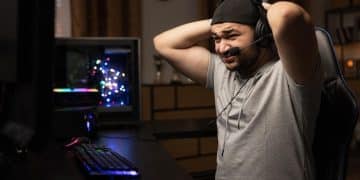

![Mastering [your chosen topic] in PC Gaming: A Deep Dive Mastering [your chosen topic] in PC Gaming: A Deep Dive - Cover Image](https://arcanenews.com/wp-content/uploads/2025/07/arcanenews.com_11_1753889991_8be9b385_cover-360x180.jpg)

